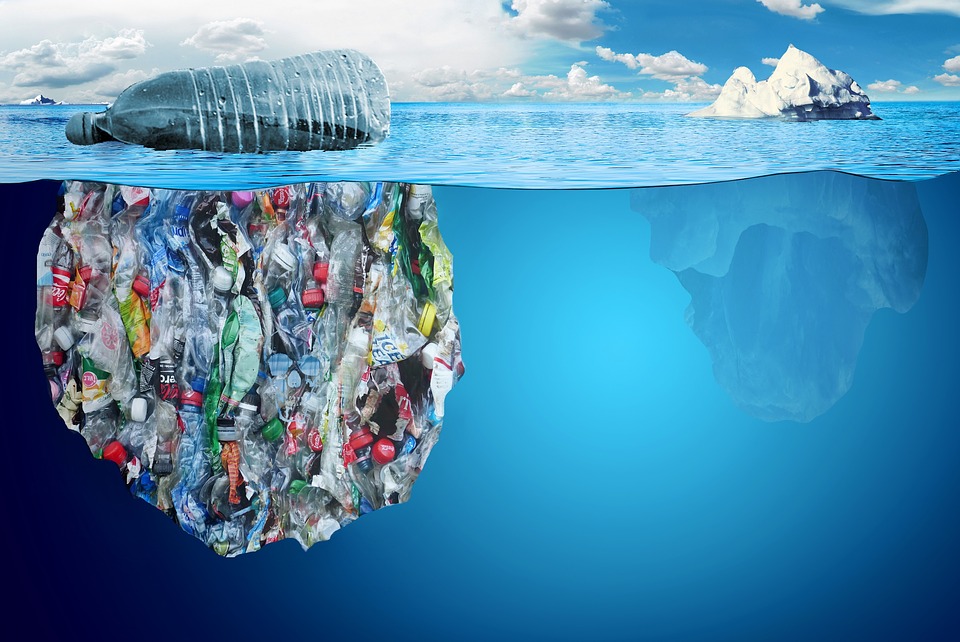Plastic pollution is killing beneficial bacteria in the ocean that help us breathe

(Natural News) When it comes to pollution, not even the smallest organism is safe from its effects. Researchers from various institutions in Australia and Denmark revealed that plastic in the ocean inhibits the growth and oxygen production of photosynthetic marine bacteria. These bacteria are believed to be responsible for up to 10 percent of the oxygen production in the world. The alarming findings were published in the journal Communications Biology.
“If we truly want to understand the full impact of plastic pollution in the marine environment and find ways to mitigate it, we need to consider its impact on key microbial groups, including photosynthetic microbes,” explained lead author Sasha Tetu from Macquarie University in Australia.
The future is plastic
Scientists have predicted that by 2050, plastic wastes will outweigh all the fish in the oceans. It is difficult to imagine that happening, but currently, 12.7 million tons of plastic waste are dumped into the deep blue – and these numbers increase each year. And ultimately, all marine species, including invertebrates, mammals, birds and fish, are affected. Terrestrial organisms are not safe from this as well. More and more cases of humans ingesting microplastics from seafood are popping up all over the world. These microplastics contribute to a wide variety of ailments.
However, microplastics are not the only problem that humans should be worried about. Plastic wastes leach chemicals into the ocean as well, affecting even the tiniest communities. Some of these chemicals include metals, dyes and flame-retardants, which are commonly added during the manufacturing process. When absorbed by marine microorganisms, it can lead to ill-boding effects.
Sponsored solution from CWC Labs: This heavy metals test kit allows you to test almost anything for 20+ heavy metals and nutritive minerals, including lead, mercury, arsenic, cadmium, aluminum and more. You can test your own hair, vitamins, well water, garden soil, superfoods, pet hair, beverages and other samples (no blood or urine). ISO accredited laboratory using ICP-MS (mass spec) analysis with parts per billion sensitivity. Learn more here.
Researchers in the recent study found that chemicals from plastic waste have potentially dangerous effects on crucial marine bacteria called Prochlorococcus. By experimenting with these bacteria in vitro, they found that exposure to plastic alters the bacteria’s genes. The plastic exposure inhibited the production of proteins needed to properly photosynthesize. Additionally, the bacteria produced less oxygen compared to the non-exposed bacteria. Researchers considered that this was not exclusive to Prochlorococcus and may affect other communities of phytoplankton as well.
The implications of their findings are immense. Oxygen is a crucial component of life on Earth, for human beings and animals alike. Coupled with deforestation, global oxygen production is at risk. Without proper measures and actions to alleviate this problem, the plastic problem will only get worse.
Reducing plastic waste
The magnitude of the plastic problem is immense and it is difficult to imagine. It is impossible to completely eradicate plastic wastes in the ocean. However, each person can adopt small habits that reduce plastic waste. If you are interested in reducing your plastic footprint, try the tips below:
1. Bring reusable containers
Invest in reusable containers, like coffee flasks, water bottles and cutlery. Make your own food and pack them in lunch boxes to avoid takeout. If you’re going to a close-knit gathering, bring your own utensils to avoid using plastic ones. When going to the grocery store, bring plastic containers to pack rice, fish and other foods.
2. Reduce single-use footprint
Bringing reusable containers is one way to reduce single-use footprint. There are other ways you can do this as well. Instead of picking food items packaged in plastic, pick those stored in glass. Some manufacturers also use biodegradable plastic. Instead of the grocery, shop in the farmer’s market and bring a tote bag with you.
3. Join a like-minded community
Solving the plastic problem is not a one-man job. Look for others with the same mindset as you and discuss ways to promote plastic awareness.
Plastic affects organisms everywhere. Several studies have noted its adverse effects on health and now, it also affects the air we breathe. Learn more about plastic pollution and its potential solutions at OceanHealthNews.com.
Sources include:
WeForum.org[PDF]


